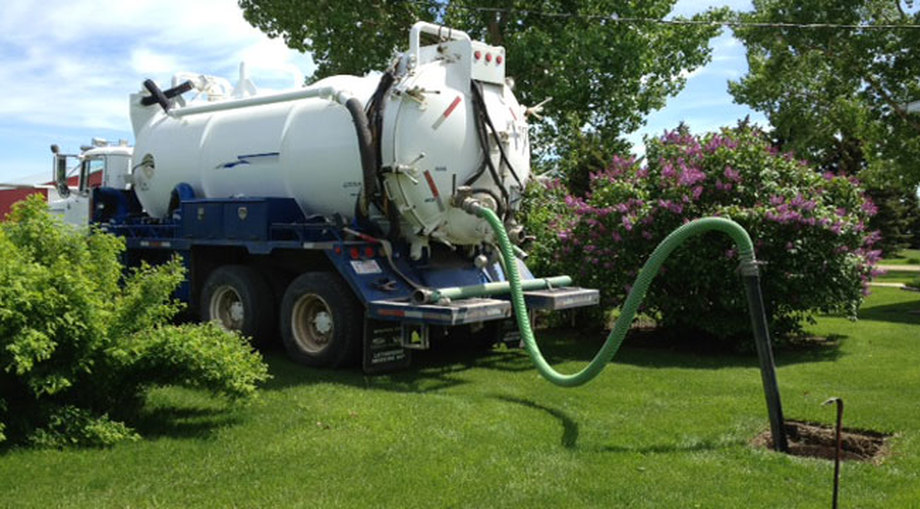Maintaining & Pumping Your Septic Tank Frequently
Generally, households not served by the conventional public sewer system in Erie, PA rely on septic systems to treat and dispose of their wastes. Septic systems are significant financial investments that need to be properly designed, installed, and maintained to provide years of low-cost reliable service.
A septic system's performance largely depends on the usage by the residents and homeowner. A failing septic system can be a source of pollution and a health hazard, leading to property damage, surface and ground water pollution (water from the well), and disease outbreaks.
When your septic system fails to perform efficiently, you may need to replace it all together, something that will cost you thousands of dollars.
And did you know that an effectively working septic system increases the value of your home—one more reason why you should frequently run a maintenance check your septic system. It makes a lot of sense then to take steps to understand and carefully maintain your septic system.
A septic system's performance largely depends on the usage by the residents and homeowner. A failing septic system can be a source of pollution and a health hazard, leading to property damage, surface and ground water pollution (water from the well), and disease outbreaks.
When your septic system fails to perform efficiently, you may need to replace it all together, something that will cost you thousands of dollars.
And did you know that an effectively working septic system increases the value of your home—one more reason why you should frequently run a maintenance check your septic system. It makes a lot of sense then to take steps to understand and carefully maintain your septic system.
Caring For Your Septic System in Erie County
Septic tank maintenance is not complicated, neither should it be expensive. However, homeowners and residents of Erie County must carry out regular upkeep to ensure the septic tank performs at its optimal.
From frequent inspection and pumping, efficient use of water, proper waste disposal to well-maintained drainfields, caring for your septic tank can reduce failure, and provide long-term and efficient treatment of household wastes.
Excess water and disposal of chemicals and organic matter like that from garbage can destroy a septic system, also necessitating a repair or even replacement.
From frequent inspection and pumping, efficient use of water, proper waste disposal to well-maintained drainfields, caring for your septic tank can reduce failure, and provide long-term and efficient treatment of household wastes.
Excess water and disposal of chemicals and organic matter like that from garbage can destroy a septic system, also necessitating a repair or even replacement.
Regular Inspection and Pumping Of Your Septic Tank
One of the most effective ways of maintaining your household septic system is to have a septic service professional inspect and remove scum and sludge build-up before it can be washed into the drainfield.
So, how often should your septic tank be pumped? Household septic tanks should be pumped regularly. However, the size of the tank, the number of people in a household, amount of water used, and the volume of solids ( garbage disposals, human and any other waste) entering the septic system all determine how often your septic tank should be pumped--usually every 3 to 5 years.
Alternative septic systems with pumps, float switches or mechanical components should be inspected more regularly, (at least once a year). Just like automobiles, a septic system is designed to provide effective, long-term treatment of all household wastes when it’s operated and maintained properly. With our experience, we know without a doubt that most septic systems fail prematurely because of improper maintenance.
In case your septic system fails, a competent professional for sewer repair, installation and maintenance should be of help to you.
So, how often should your septic tank be pumped? Household septic tanks should be pumped regularly. However, the size of the tank, the number of people in a household, amount of water used, and the volume of solids ( garbage disposals, human and any other waste) entering the septic system all determine how often your septic tank should be pumped--usually every 3 to 5 years.
Alternative septic systems with pumps, float switches or mechanical components should be inspected more regularly, (at least once a year). Just like automobiles, a septic system is designed to provide effective, long-term treatment of all household wastes when it’s operated and maintained properly. With our experience, we know without a doubt that most septic systems fail prematurely because of improper maintenance.
In case your septic system fails, a competent professional for sewer repair, installation and maintenance should be of help to you.
Here are Five Things To Watch Out For
- Slow draining fixtures
- Sewage appearing in grass under play set
- Odors, wet spots or lush vegetation growth in your drain field area even during dry weather
- Septic tank or plumbing backups (usually a black liquid with a horrible odor)
- Gurgling sounds within the plumbing system
If you notice any of the following signs of failure or suspect that your sewer system could be having problems, be sure to call in a qualified septic professional.



 RSS Feed
RSS Feed
